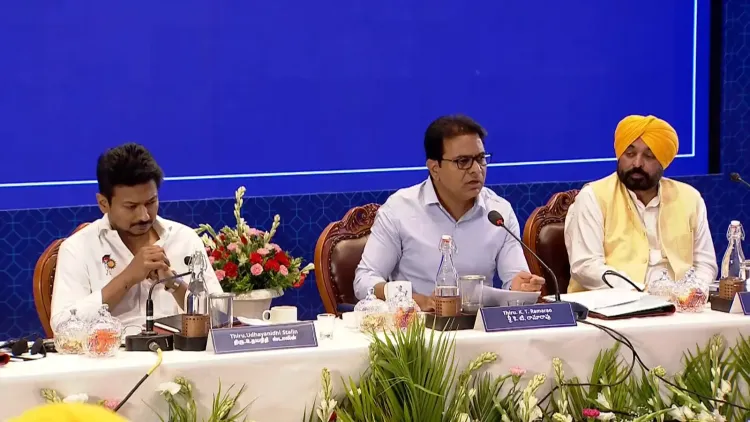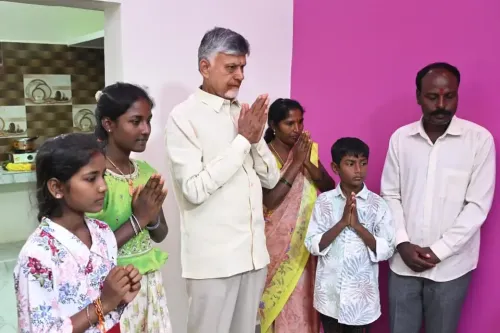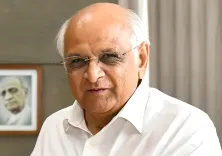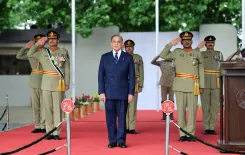K.T. Rama Rao Critiques Centre's Delimitation Proposal, Raises Concerns for Southern States

Synopsis
Key Takeaways
- K.T. Rama Rao criticized the Centre's delimitation proposal.
- Emphasized the need for equitable representation beyond population.
- Highlighted fiscal imbalance affecting southern states.
- Called for unity among southern leaders against unfair practices.
- Stressed the importance of a fair formula for delimitation.
Chennai, March 22 (NationPress) Bharat Rashtra Samithi (BRS) Working President K.T. Rama Rao on Saturday vehemently condemned the Centre's proposed delimitation initiative, cautioning that it could significantly jeopardize the interests of South Indian states.
During the Joint Action Council (JAC) meeting on “Fair Delimitation” led by Tamil Nadu Chief Minister M.K. Stalin in Chennai, he stressed that India’s democracy should be built upon progress, governance, and economic contributions rather than solely population statistics.
“An equitable system should recognize progress and promote development in underperforming areas. If India aspires to be a superpower by 2047, a century after gaining independence, we need to empower those who are fostering growth, not mute them,” asserted Rama Rao, the son of former Telangana Chief Minister K. Chandrasekhar Rao.
He pointed out that discrimination against Southern states has been escalating, particularly in the last decade under the BJP-led central government.
“From the imposition of Hindi to the concentration of mega infrastructure projects like the bullet train in the northern regions, there is a clear pattern of favoritism,” he stated.
Rama Rao expressed grave concerns regarding the Centre’s plan to undertake the next delimitation based on population, arguing that this would further marginalize the South and lead to an unequal allocation of resources. He highlighted the fiscal disparity, noting that the five southern states contribute approximately 36 percent to India’s GDP yet receive an unfairly small portion of central funds.
“This raises critical questions about fiscal federalism and centralization. Population-based delimitation will exacerbate this inequality,” he warned.
“If we permit this to continue, we, as leaders from South India, will be doing a grave disservice to future generations,” he cautioned.
The meeting in Chennai represented a significant display of opposition solidarity against the BJP government’s proposed 2026 delimitation exercise.
Chief Minister Stalin, who is leading this initiative, has become a pivotal figure in uniting opposition voices on this matter. The inaugural JAC meeting on “Fair Delimitation” saw the participation of three other Chief Ministers - Pinarayi Vijayan (Kerala), A. Revanth Reddy (Telangana), and Bhagwant Mann (Punjab) - along with Karnataka Deputy Chief Minister D.K. Shivakumar and representatives from the Congress, Biju Janata Dal, and BRS.
Interestingly, West Bengal’s Trinamool Congress (TMC), though invited, did not send a representative to the meeting. This united opposition stance follows an all-party conference convened by Stalin in Tamil Nadu on March 5, where 58 registered political parties - excluding the BJP - came together to voice strong opposition to the proposed delimitation. The DMK and its allies contend that delimitation based solely on population growth disproportionately impacts southern states, which have successfully implemented population control measures over recent decades. They argue that such a policy shift threatens India’s federal structure and penalizes states for effective governance.
As the 2026 deadline for the next delimitation exercise approaches, political mobilization against it is intensifying, with southern leaders advocating for a fairer formula that considers economic contributions, governance performance, and development metrics alongside population.









